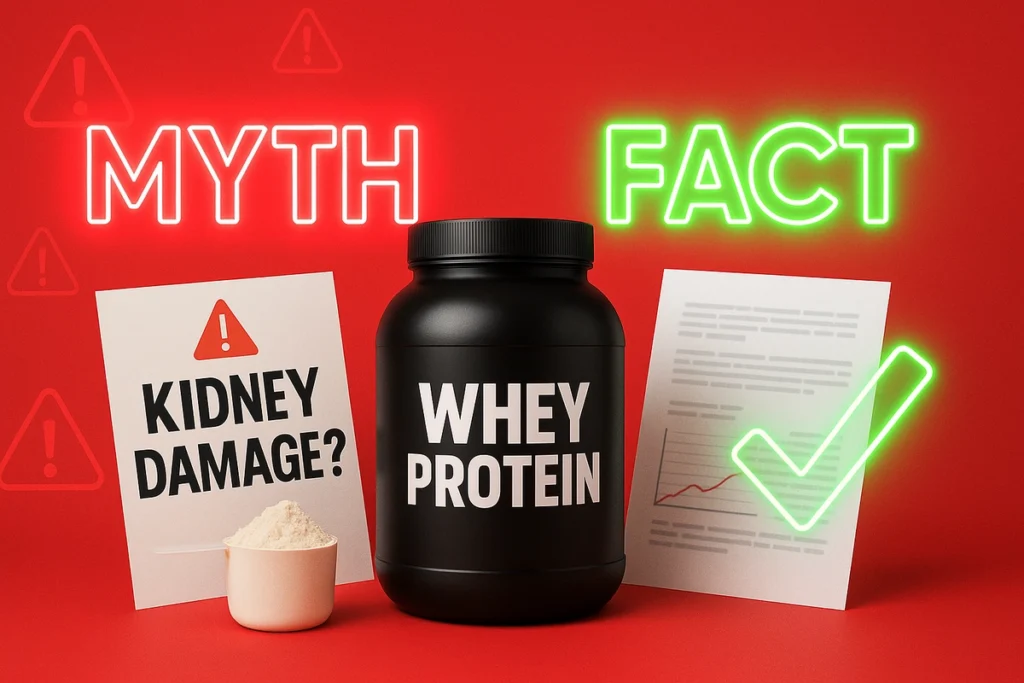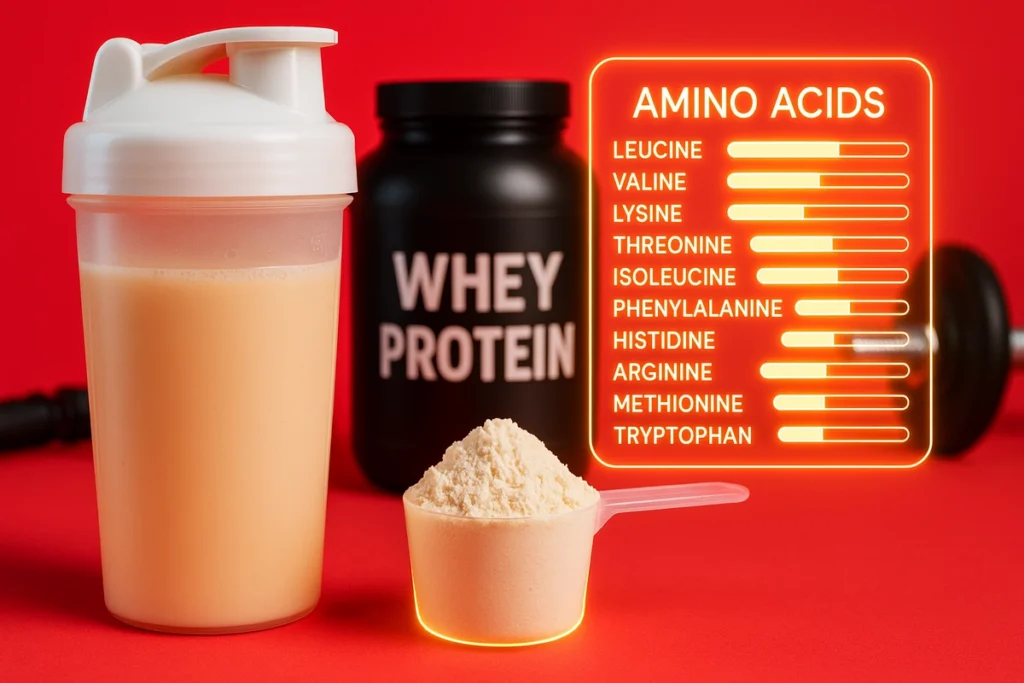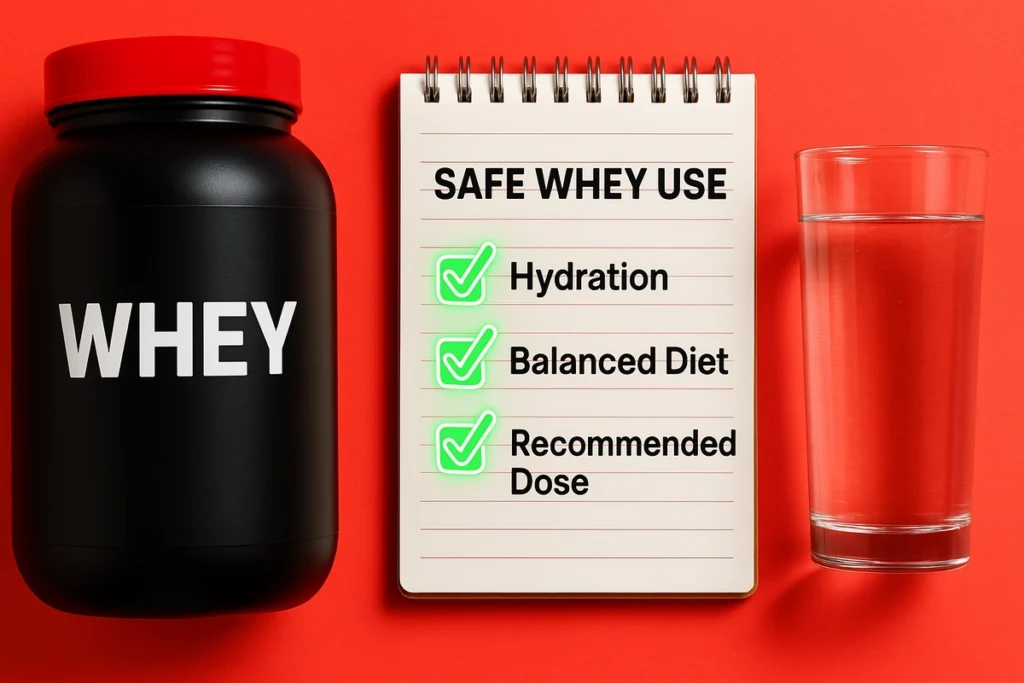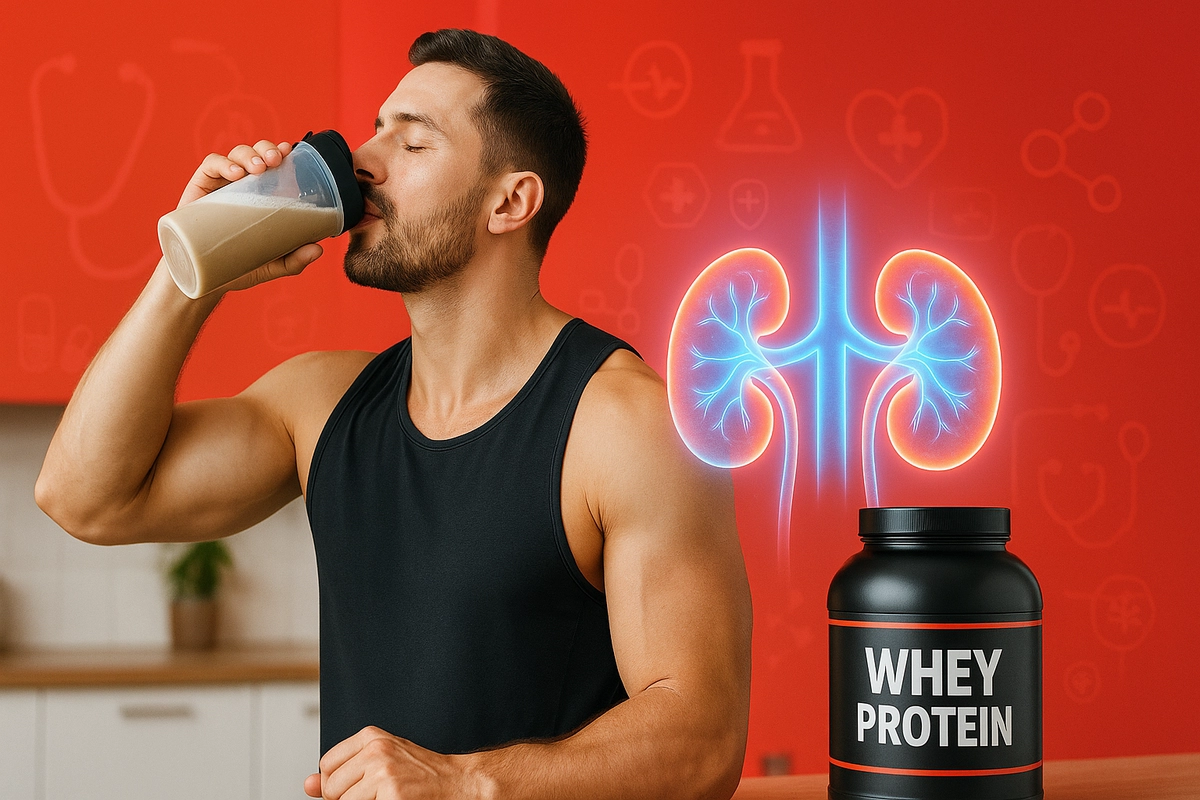Are you worried that whey protein might harm your kidneys? You’re not alone—this concern pops up in nearly every fitness discussion.
With so many myths and fears online, it’s easy to wonder if your daily shake is secretly causing damage.
As a professional fitness trainer who’s helped hundreds of clients and used whey myself for years, I’ve heard — and lived through — all the questions.
The truth? For healthy individuals, whey protein is safe and effective.
Before you ditch your post-workout shake, let’s dive into the facts, debunk the kidney myths, and share real-world stories you can trust.
If you want clarity on whey protein and kidney health, you’re in the right place.
Table of contents
Quick Answer to the Kidney Concern

Are you worried that whey protein might harm your kidneys? You’re not alone. This question comes up in nearly every fitness conversation, especially among newcomers.
With so many myths floating around the internet, it’s easy to wonder if your daily post-workout shake is secretly a risk. As a professional fitness trainer who’s been using whey protein for years, I’ve seen the confusion firsthand with my own clients.
The short answer? For healthy individuals, whey protein does not damage your kidneys. I personally use it every day, and I’ve never had kidney issues—nor have the hundreds of clients I’ve coached.
Before you ditch your protein shake, let’s break down the facts and tackle the myths. You’ll get evidence, expert insight, and stories you can trust.
Curious about when it’s best to take your shake? Don’t miss our full guide on whey protein before or after workout for more strategies.
Understanding Whey Protein

Whey protein is a fast-digesting, high-quality supplement sourced from milk. It’s popular with athletes, bodybuilders, and anyone serious about muscle recovery and growth.
I started supplementing when intense training left my diet short on protein. If you’re confused about how whey compares to EAAs or BCAAs, check out our deep dive: EAAs vs BCAAs vs Protein Guide.
Scientific Evidence: Whey Protein and Kidney Health

Let’s clear the air: There’s no real scientific evidence showing that normal whey protein use harms healthy kidneys. Most scare stories link back to studies on individuals with pre-existing kidney disease. For everyone else, regular whey use isn’t a danger.
I make sure to get annual blood work, and my levels have always been solid. My friend Carlos from Spain had similar fears. He spoke to his doctor and went through a full checkup—only to find he could safely continue his protein shakes.
Not sure how much protein you really need for muscle growth? Our whey protein daily intake for muscle growth article breaks it down with real numbers.
Side Effects of Whey Protein

What about side effects? For most healthy adults, the main side effect is mild digestive discomfort, usually from too much protein at once.
I’ve personally noticed bloating if I go overboard—usually more than two scoops in a day does it.
Some of my clients wonder about using protein every day; if that’s you, read our post on whey protein daily use safety.
For people trying to bulk up quickly, deciding between a mass gainer or whey protein can be confusing. Here’s clarity: Mass Gainer vs Whey Protein: What’s Best for Bulking?.
Whey Protein: Safe Use Guidelines

So how much is safe? For most, one or two scoops (20–40g) per day is plenty—sometimes less, if your regular meals supply enough protein. I used to take three scoops a day, until better meal planning made that unnecessary.
If you’re skinny and looking to put on size, see our tips for whey protein for skinny guys.
Wondering if you can use whey protein even on rest days? Here’s our complete look at taking whey protein without working out.
I always recommend sticking with transparent, trusted brands, like Optimum Nutrition or MyProtein. Quality matters.
Precautions for People with Kidney Issues

Here’s where it matters: If you already have kidney concerns or a family history of kidney disease, always consult your doctor before adding supplements—including whey. One of my clients, Julia from Germany, took this approach, and her doctor gave her the green light. Now, she checks in with regular medical tests and stays healthy.
Still confused about what’s best for your goals—EAAs or protein powder? Visit our comparison: EAAs vs Protein Powder: Which Should You Use?.
Conclusion: Key Takeaways for Gym-Goers and Athletes

For most healthy athletes and gym-goers, whey protein is a safe, effective tool for recovery and muscle gain. Personally and professionally, I’ve seen only benefits—never kidney harm.
Stick to a balanced approach, monitor your health with routine checkups, and reach out to your doctor with any concerns. Real results come from consistency, not overdoing it.
Stay motivated, keep learning, and train smart—whey protein can be a helpful (and safe) part of your fitness journey!



Leave a Reply